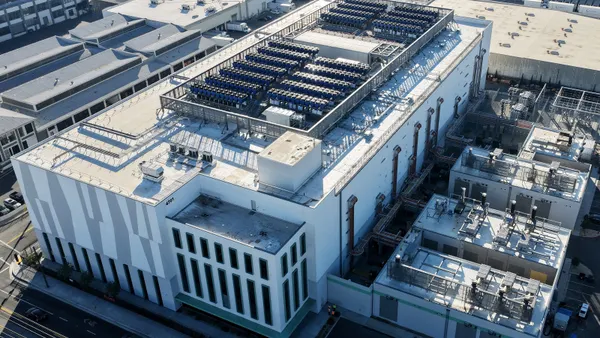Dive Brief:
- The U.S. Court of Appeals for the District of Columbia Circuit yesterday agreed to hold Clean Power Plan litigation in abeyance for an additional 60 days, but the U.S. Environmental Protection Agency must file monthly updates.
- The order, joined by the 10-judge en banc panel that heard the case last September, also includes a reminder for the federal government: that EPA has an “affirmative statutory obligation to regulate greenhouse gases."
- In April, the court granted an initial delay in the litigation as the White House reviews the rule and considers how to replace it. Since taking office, President Trump has been working to role back Obama-era environmental protections and regulations.
Dive Insight:
In another blow for environmental groups and the Obama administration, the D.C. Circuit court has continued the delay in Clean Power Plan litigation and enforcement. But the court's order, in addition to requiring monthly reports from the federal government, included a stark reminder that the Trump administration will need to replace the rule — not simply rescind it.
The court's order reminded the Trump administration of the 2009 endangerment finding, which means the EPA has an "affirmative statutory obligation to regulate greenhouse gases."
President Trump campaigned relentlessly on rolling back regulations he saw as onerous or costly to American businesses. After taking office, the president has launched a series of reviews on environmental rules, including smog and mercury restrictions and the Waters of the United States (WOTUS) rule. Where those rules are under consideration by the courts, the administration has asked judges to delay rulings and hearings while the regulations are reviewed.
In April, the Circuit Court sided with Trump's EPA, which argued it "should be afforded the opportunity to fully review the Clean Power Plan and respond to the president's direction in a manner that is consistent with the terms of the executive order, the Clean Air Act, and the agency's inherent authority to reconsider past decisions."
After the decision, the Environmental Defense Fund, along with a coalition of 14 other public health an environmental organizations, urged the court in May to make a decision on the rule based on its merits.
The extension buys time for the White House, which is still considering whether to revise the existing rule, replace it with a less-stringent carbon regulation, or attempt to rescind it outright. If the administration decides to rescind it altogether, it would set up a legal showdown over the scope of the Clean Air Act or the EPA's 2009 endangerment finding on greenhouse gases. And that's a fight that EPA Administrator Scott Pruitt is leery of in the near future.













